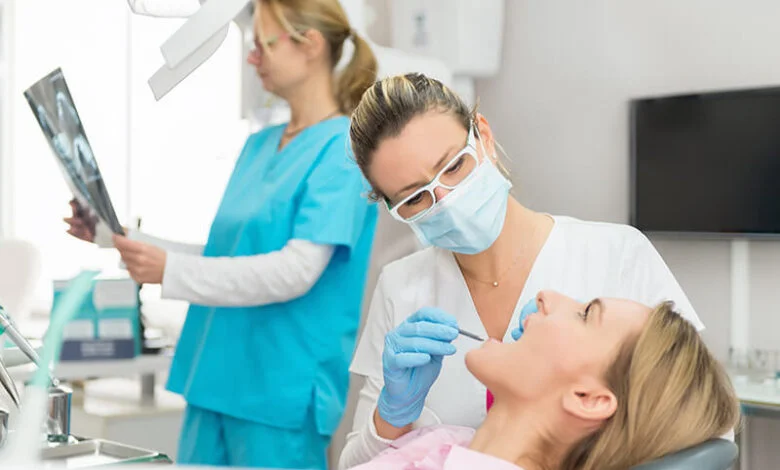Introduction to Dental Health
Dental health is a vital component of overall well-being, influencing not just the condition of one’s teeth and gums, but also affecting general health. The mouth serves as a gateway to the body, and poor dental hygiene can lead to various health complications. For instance, bacteria from dental decay can proliferate and enter the bloodstream, potentially causing infections in other parts of the body. This interconnectedness underscores the necessity of proper dental care.
Common dental issues include cavities, gum disease, and tooth sensitivity. Cavities arise from the demineralization of tooth enamel due to acids produced by bacteria from food particles left on teeth. Gum disease often manifests as gingivitis or periodontitis, both conditions that can lead to tooth loss if left untreated. Understanding these prevalent conditions empowers individuals to take proactive measures in maintaining their dental health.
Preventive care plays a crucial role in averting these common dental problems. Regular brushing and flossing, along with the use of fluoride toothpaste, are fundamental practices that help eliminate plaque buildup. Additionally, maintaining a balanced diet low in sugar can significantly reduce the risk of cavities. The importance of routine dental check-ups cannot be overstated; these visits allow for early detection of potential issues, professional cleaning that removes tartar, and tailored advice from dental health professionals.
By prioritizing dental health, individuals set the stage for overall wellness. Insights from sources like newssyc.in/category/dental highlight the significance of informed dental practices and underscore the necessity of comprehensive oral care routines. Ensuring that one’s dental health is maintained not only fosters a healthy mouth but also contributes substantially to the individual’s quality of life.
Latest Trends and Innovations in Dentistry
The field of dentistry is undergoing significant transformations due to ongoing advancements in technology and treatment methodologies. With resources like newssyc.in/category/dental, dental professionals are increasingly able to keep pace with these changes, ultimately enhancing patient care and experience. One prominent trend that has emerged is teledentistry, which has gained traction, particularly in response to the global health crisis. This innovative approach allows dental care providers to conduct consultations and assessments remotely, improving accessibility for patients who may otherwise face barriers to dental visits.
In addition to teledentistry, laser treatments are revolutionizing various dental procedures. Lasers offer a less invasive method for addressing dental concerns, such as gum disease and cavity treatment. The precision of laser technology minimizes discomfort and reduces recovery time for patients, making it a preferred option in many dental practices. As awareness of these technologies increases, many professionals incorporate them into their practices, bolstered by informative articles from sources like newssyc.in/category/dental.
Moreover, advancements in dental materials have paved the way for more efficient procedures and improved patient outcomes. The introduction of biocompatible materials enhances the durability and aesthetic appeal of dental restorations. This progress not only enhances patient satisfaction but also ensures longer-lasting results in dental treatments. Modern composites, ceramics, and other materials are revolutionizing how dentists approach restorative work, providing superior options that cater to diverse patient needs.
Incorporating these contemporary trends and innovations is essential for dental professionals aiming to elevate their practice. By staying informed through reputable sources such as newssyc.in/category/dental, dentists can adapt to an evolving landscape, continually improving the quality of care they provide to their patients.
Common Dental Procedures Explained
Dentistry encompasses a variety of procedures, each designed to address specific oral health issues. Understanding these common dental procedures can help patients feel more informed and less anxious during treatment. This section will clarify several frequently performed procedures, including fillings, crowns, root canals, and orthodontics, all while referencing valuable insights from newssyc.in/category/dental.
Fillings are one of the most common dental procedures, aimed at treating cavities caused by tooth decay. During this procedure, the dentist will remove the decayed part of the tooth and fill the cavity with materials such as amalgam, composite resin, or glass ionomer. This not only restores the tooth’s structure but also prevents further decay. The expected outcome is a restored tooth that functions normally, and recovery generally involves minimal discomfort.

Crowns, or dental caps, are custom-made to encase damaged teeth. Their purpose is to strengthen and improve the appearance of a tooth that has been weakened due to decay, trauma, or extensive dental treatment. The procedure involves reshaping the existing tooth, followed by placing the crown. Patients can expect a durable restoration that mimics the natural tooth, with recovery typically requiring a few days for adjustment.
Root canals are essential for treating infected or severely damaged teeth. This procedure involves removing the infected pulp and nerves from the tooth’s interior, disinfecting the area, and then sealing it to prevent further infection. While root canals are often perceived as painful, advances in dentistry have significantly minimized discomfort. Recovery includes some swelling and sensitivity, but most patients can return to normal activities shortly after the procedure.
Finally, orthodontics involves the use of braces or aligners to correct misaligned teeth and jaws. The goal is to enhance both function and aesthetics. Treatment duration varies, typically ranging from several months to a few years, depending on the complexity of the case. Post-treatment care often involves retainers to maintain the new tooth position.
By understanding these common procedures, patients can approach dental visits with increased confidence and awareness, further supported by informative resources available at newssyc.in/category/dental.
Tips for Maintaining Optimal Dental Hygiene
Maintaining optimal dental hygiene is crucial for overall health and well-being. The foundation of healthy teeth and gums begins with effective brushing techniques. It is recommended that individuals brush their teeth at least twice a day using fluoride toothpaste. A soft-bristled toothbrush is advised to avoid damaging the enamel. When brushing, ensure that you cover all surfaces of the teeth: front, back, and chewing surfaces. Spend at least two minutes brushing, and remember to replace your toothbrush every three to four months to maintain its effectiveness.
Flossing is another key aspect of dental hygiene that many people overlook. Flossing helps to remove food particles and plaque from areas that the toothbrush cannot reach, particularly between the teeth and under the gumline. It is advisable to floss at least once a day, preferably in the evening before bedtime, to help prevent cavities and gum disease. For those who find traditional floss challenging, interdental brushes or dental picks can serve as effective alternatives.
Your dietary choices play a significant role in maintaining dental health as well. Limiting sugary snacks and beverages can significantly reduce the risk of tooth decay. Instead, incorporate foods rich in calcium and phosphorus, such as dairy products, leafy greens, and nuts, which can strengthen teeth. Additionally, drinking plenty of water helps to wash away food particles and bacteria, making it a vital component of your dental hygiene routine.
Lastly, routine dental visits should not be overlooked. Regular check-ups and professional cleanings allow for early detection of potential issues before they become serious problems. Dentists can provide personalized advice tailored to your specific needs, further guiding you in your dental hygiene journey. By following these tips, you can ensure a healthier, brighter smile and improve your overall dental health, as explored in more detail at newssyc.in/category/dental.
May Be You Also Read
